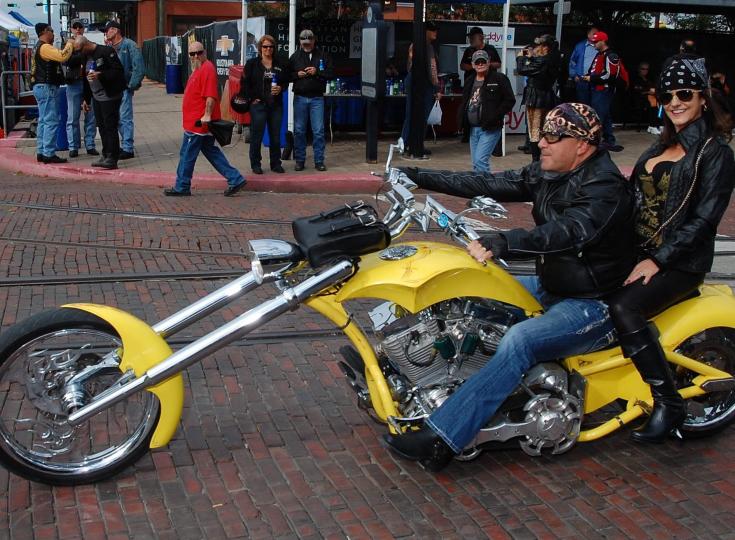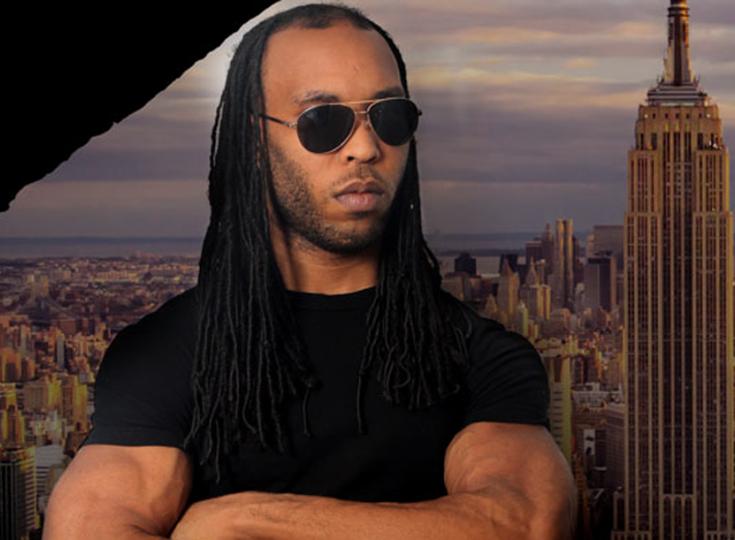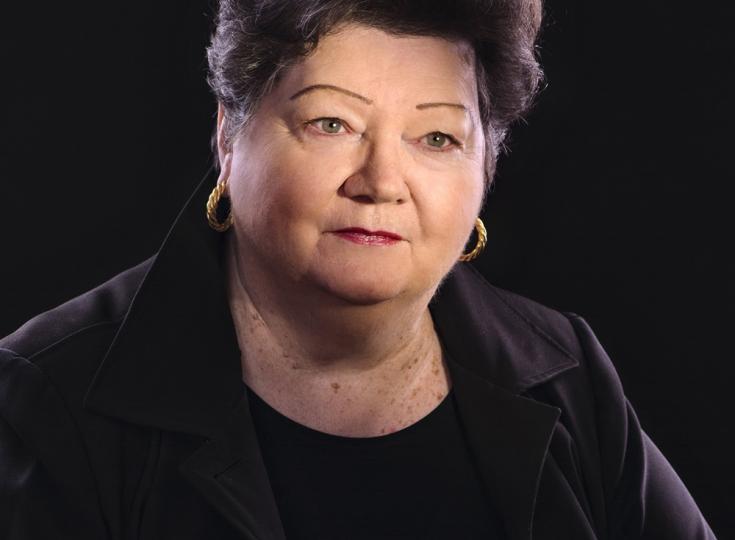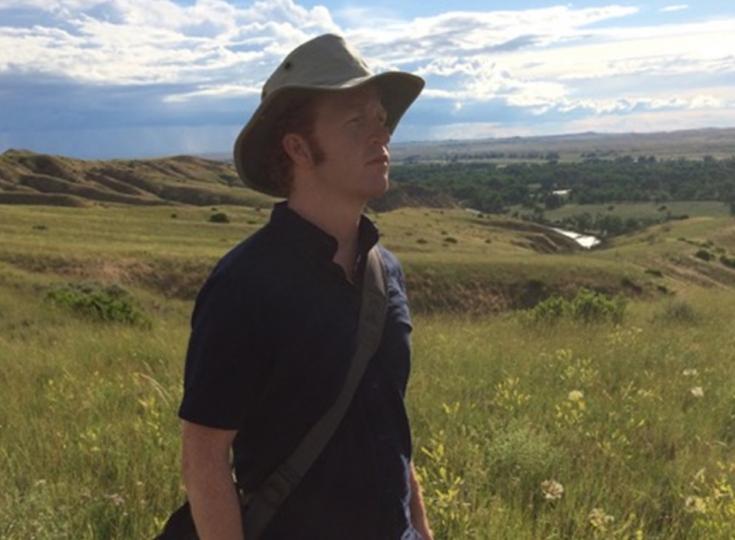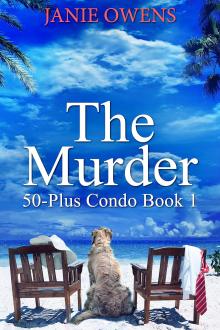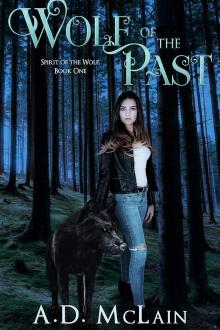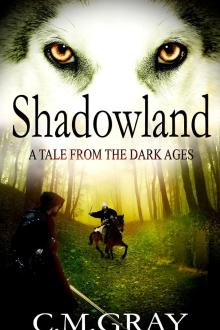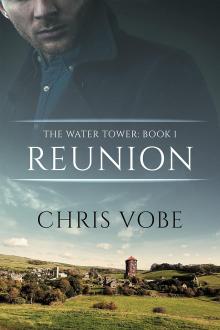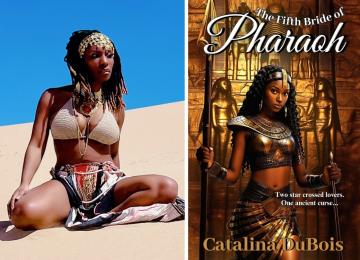Michael Hingson - Rare Trust Between a Man and His Guide Dog
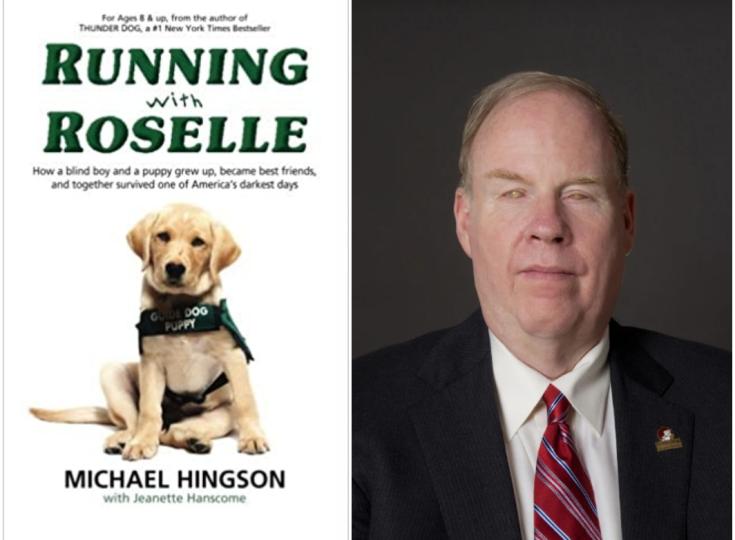
Michael Hingson wrote the runaway bestseller, Thunder Dog: The True Story of a Blind Man, His Guide Dog, and the Triumph of Trust at Ground Zero. He lives in Victoriaville, Southern California with his wife, Karen, his guide dog, Africa, and Africa's mother Fantasia. When he isn't traveling the world with Africa speaking and teaching, he enjoys playing with his dogs, cooking, and helping Karen with her quilting business. Mike's favorite things include Harry Potter books, nachos with cheese only, talking with people on his ham radio set, and listening to vintage radio shows. As our Author of the Day, he tells us all about his book, Running With Roselle.
Please give us a short introduction to what Running With Roselle is about.
In 2011 my first book, Thunder Dog, was published. It became a number-one New York Times bestseller. Two years later, a colleague and I decided to write a children's book as a follow-up to Thunder Dog. As the book evolved, we decided to make it a children's book. It is not a picture book, but rather it was intended to be a book to teach children about blindness, tell them my story and the story of Roselle who was with me at the World Trade Center, and to tell a little bit about our World Trade Center story.
The book is very much about my life growing up as a blind child and youth. It is also the story of Roselle growing up from the time she was born at Guide Dogs for the Blind in San Rafael California learning to live in a house with Kay and Ted Stern and others who raised her in the Santa Barbara area and then the process of training her to be a guide dog. Of course, we also talk about when Roselle and I met and some of our adventures. Naturally, the biggest adventure of all was our story of being in the World Trade Center on September 11, 2001.
As it turns out, more adults are buying it than children, but youth and adults who get access to the book give us wonderful and positive comments about it. So, Running with Roselle in part is a way that we get to educate people about what it is like being blind, growing up being blind, showing people about guide dogs including what they do and how they learn to do it and then it gives people a flavor for what happens when a guide dog and its team a graduate and go off into the world to live together.
What inspired you to write this story? Was there anything in particular that made you want to tackle this?
Of course, Thunder Dog is certainly a major part of the inspiration. Susie Flory, who collaborated with me on Thunder Dog did not work with me on this book. She introduced me to Jeanette Hanscom who had more experience in writing children's books.
For most of my life I have wanted to help educate people about blindness, what it is like to be blind and I want to help people recognize that their attitudes and thoughts about blindness are wrong. After September 11, 2001, I began speaking publicly telling people our story, discussing the lessons to be learned from September 11 and I spent a fair amount of time discussing blindness and the whole concept of persons with disabilities. I felt that both Thunder Dog and Running with Roselle would be great ways to impart a lot of this information to a wider audience. I think we have been successful at doing this. Even so, breaking through the barriers created by people's fear of the concept of blindness continues to be a challenge.
Tell us more about Roselle. What makes her so special?
In some ways, Roselle was no different than any other guy dog that I have ever had. She was obedient, loves to work and she loved to be part of a team. Roselle responded very well to praise and to working with me. The one thing that I would say about Roselle that I think made her somewhat special was that she always was very focused and was not prone to be distracted by things. While guy dog schools try to breed not being distracted into dogs they use, and while during training dogs are discouraged from being distracted by outside influences, I believe Roselle did better than any other guide I have had. I had four guide dogs prior to Roselle, and I have had three since. I think it would be fair to say that Roselle was the most focused guide I have ever experienced.
Besides writing, what other secret skills do you have?
Having written two successful books about my life, I'm not sure that there are any secret skills left. 😊 I love to teach. I am an amateur radio operator. My Master’s degree from the University of California at Irvine is in physics. I have owned and operated my own business since July 1, 2008. I also owned my own business from January 1985 until May 1989 when I sold the business and went back into the public workforce. Especially since September 11, 2001, I think it is pretty clear that I have an aptitude for speaking in public. Large audiences do not bother me. In fact, two weeks after September 11, I was called by a church in New Jersey that asked me to come and be part of a church service honoring all the New Jersey people lost on September 11. As it turns out, 6000 people attended that service and thus heard me speak. So, again, large audiences are not a problem.
Your first book, Thunder Dog, was immensely popular. Why, would you say did it grip the hearts of people so much?
By 2011 a number of books had been written about September 11. They chronicled the events of the day. They spent a lot of time discussing one thing or another about why how and everything else concerning that day. There was so much published about September 11 that when Susie Flory and I submitted a book proposal to our agent, Chip MacGregor, the first thing out of Chip's mouth was "I don't want another September 11 book". My response was, that's great since I don't want to write a September 11 book. When we wrote the proposal and send it to Chip he literally started bouncing off the walls, because it wasn't a September 11 book, it was about my life, it was about blindness and what it is like to be blind, and of course, it was about Roselle. He felt that it was an easy book to sell, and in fact, he got us a contract within a week of him having the proposal. When the book was published officially on August 2, 2011, in its first week it became part of the New York Times Bestseller list.
You and Roselle share a very deep bond. Why was this so important during your escape from the World Trade Center?
The bond you mention is always important for anyone who uses a guy dog. Teamwork is a 2 Way Street. And, it's all about trust and teamwork. Right from the beginning of our relationship, it was important for me to earn Roselle's trust just as I expected her to earn my trust. While dogs are, I believe, prone to the unconditional love they are not necessarily prone to unconditional trust. The difference between dogs and people is that dogs are more open to trust than most people. Unless a dog has been hurt mentally and/or physically to the extent to that they lose their openness to trust, they want to trust. They want to find someone who can be the leader of the pack. They want to have a relationship. It's my job to make sure that that relationship flourishes with each guy dog that I have.
As I describe in thunder Dog and in Running with Roselle, on September 11 Roselle's behavior gave me significant clues about how I should react to what was occurring. She did not sense danger. She gave me no indication that she was afraid at any time. Her behavior told me essentially how to act and react. Of course, the other side of that is that it was important for me to let her know that I was okay by giving her constant praise and encouragement. It wasn't just my words, but it was my tone of voice. The reality is that as a team we worked extremely well together that day. I know that the two of us helped many other people as we went down the stairs and probably throughout the rest of the day.
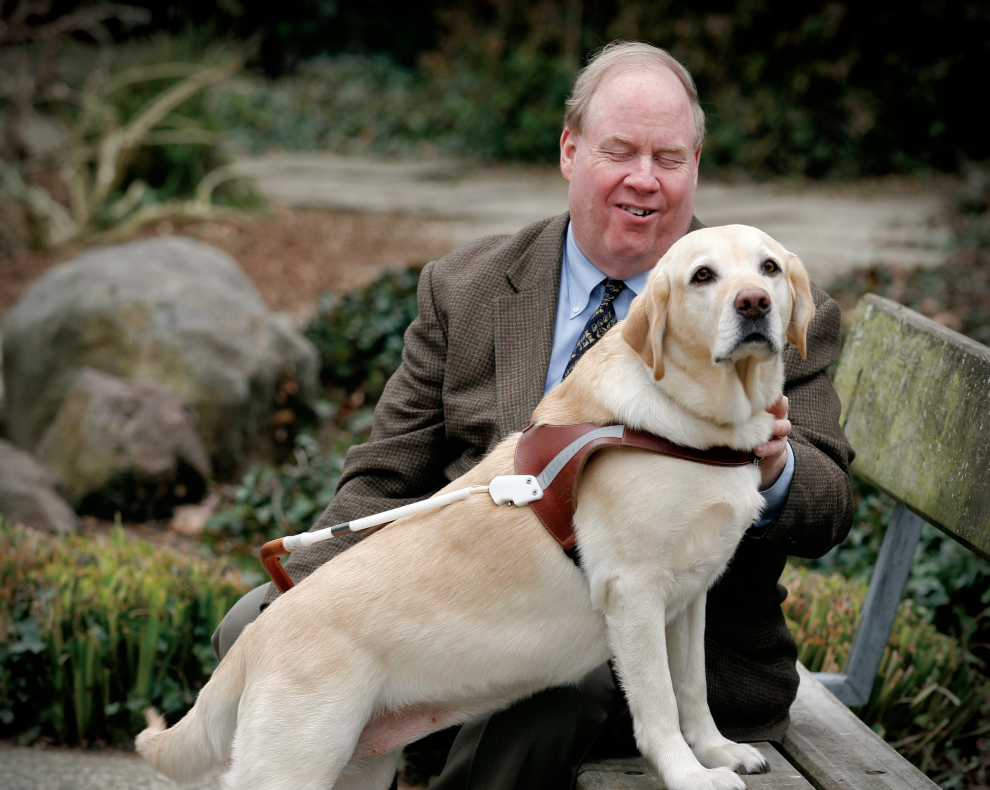
Cool cover. Tell us more about how it came about.
Actually, Jeanette Hanscom probably had more to do with the cover design than did I. I did approve it after it was described to me in detail by my wife, Karen, and others.
What was your greatest challenge when writing this story?
Probably not what you think. I had already been speaking about September 11 for 10 years, so there was no real great fear in talking about it. However, making sure we got everything right and provided descriptions that would draw people in was probably the biggest challenge that we had. I think we were successful at creating an environment that encouraged people to read the book and value our writing.
What did you have the most fun with?
The most fun? Probably just thinking about Roselle and all of our adventures and the many things we got to do together. I had the opportunity to reminisce about challenges and all of the things we did together. Many of them were in the book, but some were very personal.
What do you hope readers will take away from Running with Roselle?
Blindness is not the problem that people think it is. The reality is, the fear of blindness, the poor attitudes and misconceptions that people have about blindness and the lack of education that society provides about what it means to be blind is one of the most significant things I hope that people take away from reading the book. Also, I hope that people will better understand what a guy Doug does and what a guy dog is. For example, guide dogs do not know where their handlers want to go or how to get there, or at least I don't want my guide dogs to know that. Even in the World Trade Center where it was hard to do, I invented new ways to go from one place to another just so Roselle would not get in the habit of going one way all the time. I will say, that that kept me alert and busy thinking of creative things. I want people to be aware that what we have is as close-knit a team as other teams such as seal team six. We each, Roselle and I, had a job to do. My job was to give Roselle commands and directions such as forward, left, right, and so on. It was my job to know where I wanted to go and how to get there. Roselle's job was to make sure that we walk safely. Of course, people always ask "but you're blind, how can you possibly know where to go?". Why is it any different for me than for you? You look at signs or printed maps. I listen to my surroundings or utilize technology such as Google Maps and talking GPS systems. Before the technology, I would ask a lot of questions before traveling somewhere so I really knew my surroundings already before I even went. Again, blindness isn't the problem. Society's attitudes about blindness are what really create the problem for us.
Do you have any interesting writing habits? What is an average writing day like for you?
I love to tell stories. It's as simple as that. I believe that sales is best when stories are included. Sales, like writing, is all about relating to people and drying them into your sphere, if you will. I can sometimes be too wordy, (no comments about this email please), but I find it most effective to try to truly engage with people. Today, I run a podcast called Unstoppable Mindset. The podcast is all about telling stories. My intent with the podcast is to engage people whether they have a disability or not. My goal right from the outset and today is to get people who listen to our podcast to understand that in reality, they can be more unstoppable than they think they are. It's the same with writing.
What are you working on right now?
Ever since September 11, 2001 I have told my story. I have told people how I was not afraid that day because I had taken a lot of time to prepare to be in the World Trade Center environment in case there ever was an emergency. I tell people how I spoke with fire authorities, the Port Authority police, and how I investigated the World Trade Center by wandering around looking and learning about every place that I could and creating my own map of the innards of the complex. I knew that that was necessary in case I needed to take guests and some of my staff to lunch. If we were in the middle of a contract negotiation and suddenly we decided to go to lunch, how would it look if I said "oh I can't go anywhere because I'm blind and so someone's going to have to leave me". No! The only way for me to be successful and do my job as the mid-Atlantic region sales manager for a Fortune 500 company was to be able to say instead, "oh you want to go to lunch?". "Great, what kind of food do you want and I will lead you there".
Although I didn't realize it at the time, I was actually creating a mindset that said “you know what to do in case there is an emergency". What I have not done in the past is to begin to teach others how to develop their own skills and essentially become oriented not to being, as I call it, "blinded by fear". I and a colleague are writing a new book to talk about fear. We want people to understand that they can control it and not let it overwhelm them, or as I put it, become blinded by fear.
Where can readers discover more of your work or interact with you?
They can always visit www.michaelhingson.com. Also, if they would like to learn a little bit more about what will be some of the content of the new book, they can visit www.blindedbyfear.net. Last year I began working for a company called accessiBe. This company makes products that help make websites more inclusive and accessible for persons with disabilities. People can learn about me and this company by visiting https://accessibe.com/a/6eybb9o. They can even use a testing tool on that site to see how their own websites rank when it comes to accessibility. In our world today, there are an increasing number of laws that require that websites must be accessible and inclusive. The Department of Justice, for example, in March of this year finally came out with a position paper that stated that the Americans With Disabilities Act absolutely includes Internet website accessibility. Finally, people can also learn about me by going to www.michaelhingson.com/podcast to listen to any of our episodes or they can go to their favorite podcast site and search for Unstoppable Mindset as the podcast is up all over the world. Of course, if they do listen to the podcast we hope that they will give us a five-star rating.
